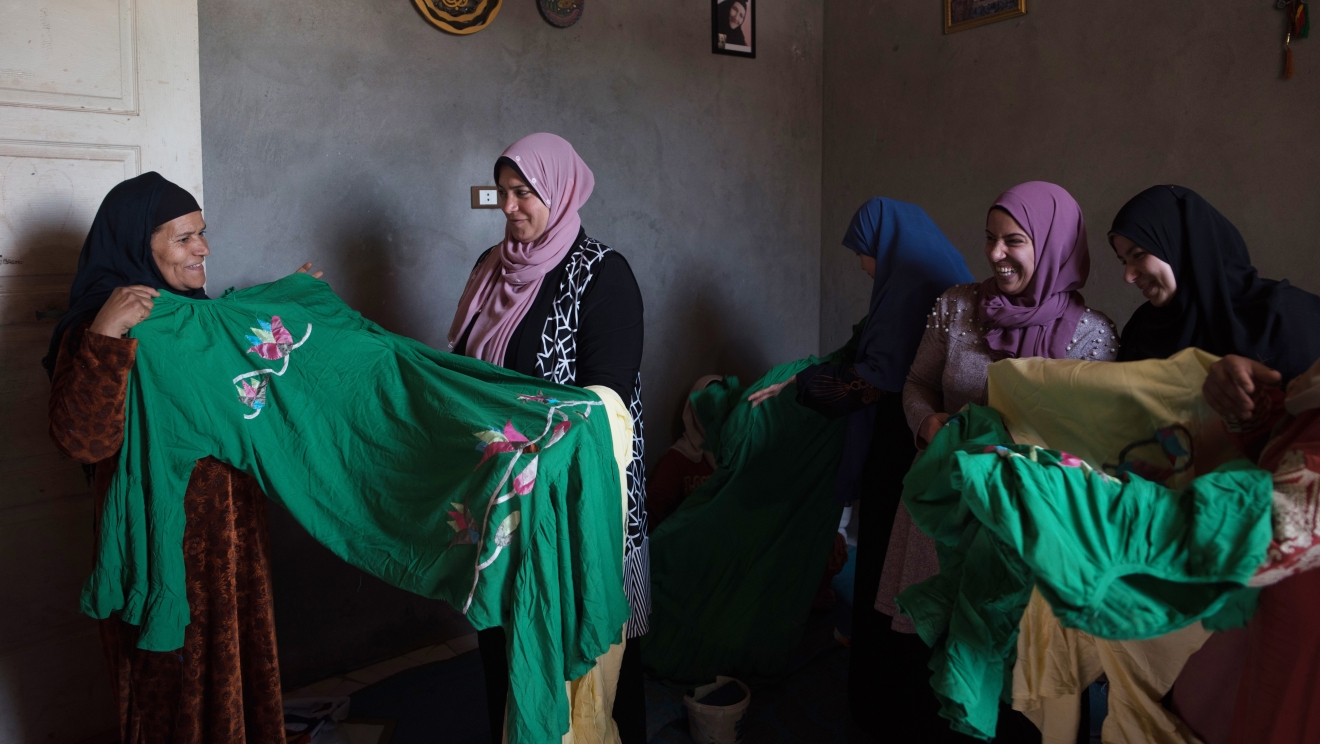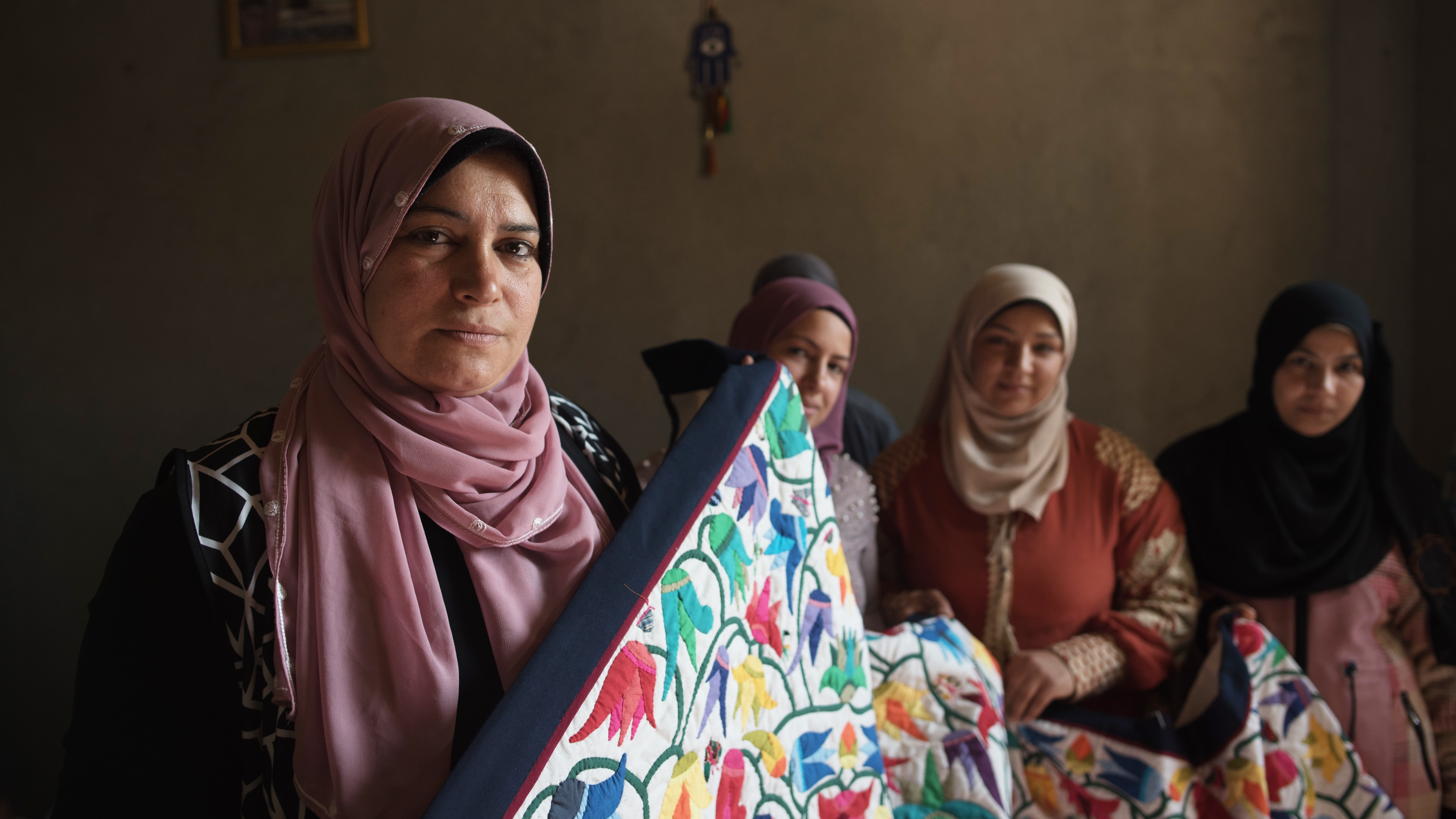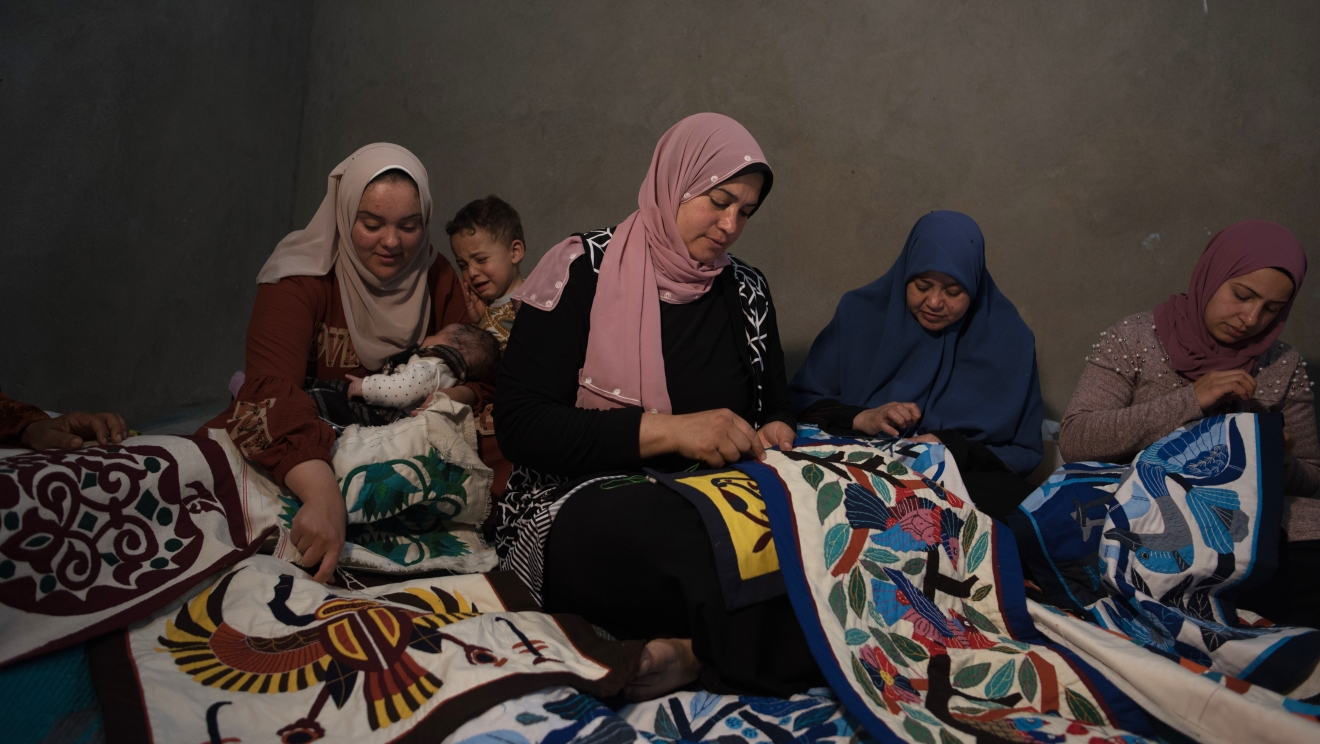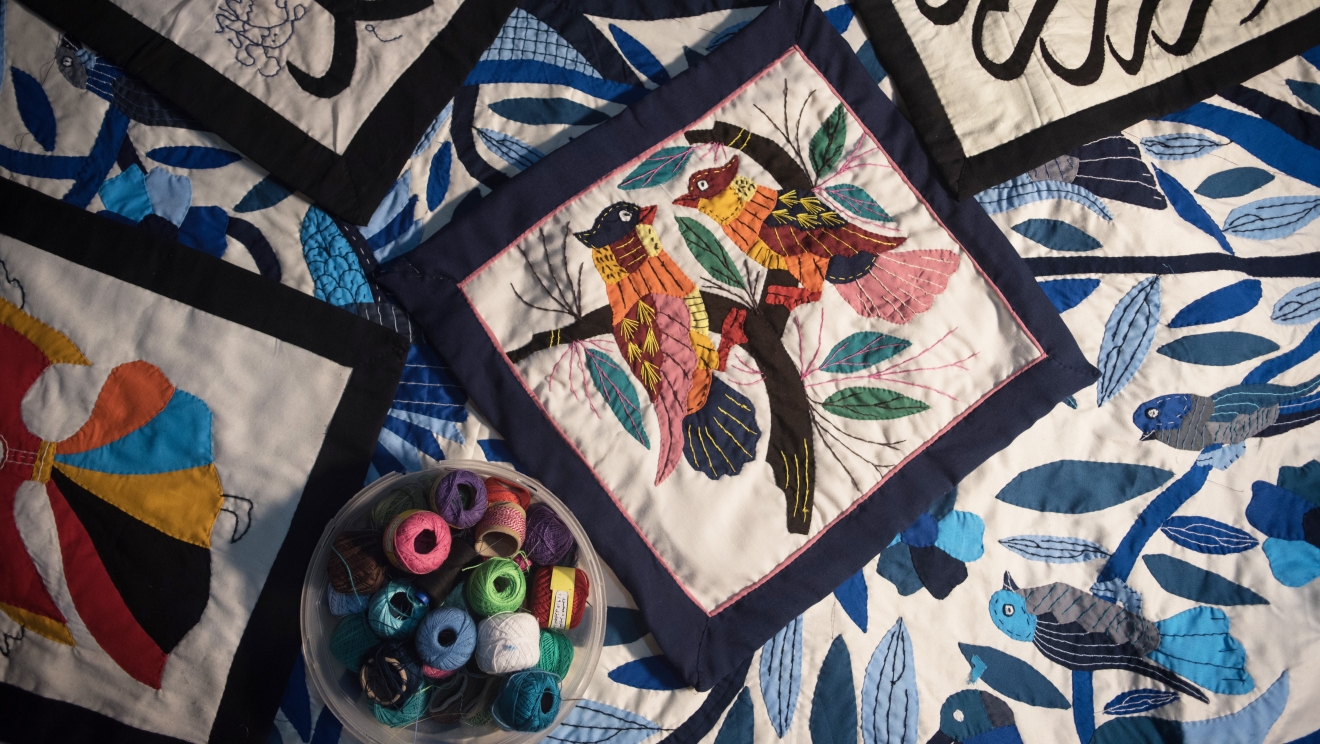

Inspiring Inclusion for Collective Success: UN Joint Programme Empowers Women in Egypt through skills training
07 March 2024 Elena Cooke

Inspired by the vibrant colours and intricate embroidery of Egyptian Khayamiya, Hanaa Redwan saw an opportunity to turn her passion into a business. Supported by ‘Rabeha’, a joint programme implemented by UNIDO and UN Women, Hanaa’s journey exemplifies determination, resilience and the transformative power of skills development.
Hanaa Redwan, founder of Al Yasser Handicrafts, embarked on her entrepreneurial journey driven by the necessity to work while balancing familial responsibilities.
"When I needed to find a job, but couldn’t work outside the home, I thought about making handmade products," shares Hanaa. "While researching ideas I discovered the ancient craft of Khayamiya. I loved the beautiful colours and embroidery work and was determined to learn the craft."
Despite initial skepticism from relatives and neighbours, Hanaa persevered, taking courses to improve her Khayamiya skills and enhance product quality. Initially, she relied on intermediaries and traders for marketing, who often offered unfair prices. However, she overcame this challenge by showcasing her work at exhibitions, enabling direct interaction with customers. With support from the Micro, Small and Medium Enterprises Development Agency (MSMEDA) she also participated in national exhibitions, providing valuable insights into customer preferences and increasing demand for her products.
To meet growing orders and expand her business, Hanaa initiated Khayamiya training sessions for women in her village of Beni Suef. Faced with the absence of a workshop for collaborative work, she invested her earnings to establish a dedicated workspace. This initiative not only facilitated collaborative efforts among women but also fostered their economic empowerment.
“At first, the societal culture made it difficult for the women to work outside their households,” explains Hanaa. “However, through training, employment opportunities and the income generated by these women, our community gradually embraced the idea and supported our collaborative efforts.”


Hanaa's entrepreneurial journey intersected with Rabeha, a joint programme implemented by UNIDO and UN Women and funded by Global Affairs Canada, aimed at promoting women’s economic empowerment for inclusive and sustainable growth in Egypt. Through Rabeha, Hanaa received training in green and circular economy principles, enabling her to tackle rising raw material costs.
"Rabeha’s circular economy training equipped me with strategies to reduce waste, recycle materials and maintain high-quality standards. Faced with increasing raw material costs, this training enabled me to save 70% on production costs by effectively utilising and recycling all materials from my work."

Through Rabeha, Hanaa also honed her business acumen as well as her design skills, learning to create products from diverse materials like Khayamiya combined with crochet or leather. Design and product development training provided by Rabeha, facilitated collaboration among a network of women artisans, enhancing their collective skills and creativity. Together, they produce joint products that blend traditional Egyptian crafts with contemporary elements.
"In the past, my primary focus was on ensuring product quality. However, through participating in Rabeha training, I’ve broadened my perspective to think more strategically about entrepreneurship, becoming a successful businesswoman and exploring market opportunities."
In the future, Hanaa aspires to elevate Al Yasser Handicrafts onto the global stage. Her ambitions include exporting her creations, participating in international exhibitions, and training women from diverse backgrounds. As International Women's Day approaches, Hanaa reflects on her journey and advocates for inclusivity and collaboration.
“I'm really proud of what I have achieved through my Khayamiya business," emphasises Hanaa. "I think it's crucial that organisations and communities support women to achieve their goals. Together, we can overcome challenges and achieve collective success."
Rabeha (meaning “winner” in Arabic) aims to support the economic empowerment of more than 6,300 women in 7 governorates through increased access to employment and self-employment opportunities. The programme is implemented by UNIDO and UN Women in partnership with the National Council for Women (NCW), the Ministry of Trade and Industry (MoTI) and the Medium, Small and Micro Enterprises Development Agency (MSMEDA), with the generous support of Global Affairs Canada (GAC).
Photos by: Hadeer Mahmoud